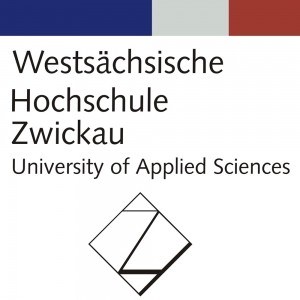Photos of university / #unifreiburg
Educational organisation
First semester:Master's seminar on Theories and Methods of China Studies
Master's seminar on Chinese Politics and Economy
Chinese language source reading class accompanying the Master's seminar on Chinese Politics and Economy
Language and Reading exercise 1
Second semester:
Master's seminar on Chinese Culture and Society
Chinese language source reading class accompanying the Master's seminar on Chinese Culture and Society
Language and Reading exercise 2
Colloquium 1: Current Research Topics
Seminar: Research and Teaching Design. This taught class accompanies a practical phase:
EITHER: Teaching an accompanying exercise or tutorial
OR: Participation in a research project
OR: Internship of about four weeks
Third semester
Semester abroad
The choice of university for the semester abroad and of the courses taken there should be based on students' interests and knowledge and has to be agreed upon by the responsible member of staff of the Institute of Chinese Studies at Freiburg University.
Fourth semester
Colloquium 2: Current Research Topics
Master's thesis
Final examination
Study abroad unit(s)
Participants spend the third semester abroad. The choice of university is based on students' interests and previous knowledge. Students who are not native speakers of Chinese are encouraged to participate in an exchange programme with a Chinese university. To date, Freiburg University has exchange programmes with the following Chinese-speaking universities: Nanjing University, Peking University, Tongji University in Shanghai, Chinese University of Hongkong, University of Hongkong, National Taiwan University and National University of Singapore.Erasmus partnerships are currently being negotiated, e.g. with the Sinological Institute at the University of Lund/Sweden.
Internships
During the second semester, students have the opportunity to complete an internship. Alternatively, they can participate actively in a research project, teach a tutorial or a class. Programme advisers will assist students in identifying possible internship opportunities.Forms of assessment
Master's Seminars: Seminar papers (Hausarbeiten) (10 ECTS each)Chinese language source reading classes: written (3 ECTS each)
Language classes: oral and written (6 ECTS each)
Seminar: Research and Teaching Design: written and oral (2 ECTS)
Practical work in second semester: written report (6 ECTS)
Semester abroad: according to university abroad (30 ECTS)
Colloquium: oral (2 ECTS each)
Final examination: oral examination (5 ECTS)
Course objectives
Successful graduates of the programme are qualified for jobs relating to China in academia, foundations, journalism, (further) education and private enterprises.Language requirements
Applicants must provide proof of English and Chinese skills:For English: English skills equivalent to C1 (i.e. TOEFL iBT 100 or IELTS band 7.0)
For Chinese: Chinese skills equivalent to B2 (i.e. HSK 4)
Academic requirements
Bachelor's degree (or equivalent) in social sciences or humanities with an overall grade of good or better (2.5 in the German system or its respective equivalent)Want to improve your English level for admission?
Prepare for the program requirements with English Online by the British Council.
- ✔️ Flexible study schedule
- ✔️ Experienced teachers
- ✔️ Certificate upon completion
📘 Recommended for students with an IELTS level of 6.0 or below.
Enrolment fees
Approx. 150 EUR per semesterCosts of living
Participants must make sure in good time that sufficient funds are available to finance their participation in a course of study. The average cost of living in Freiburg for one month is currently approx. 800-900 EUR. Some details:- Student accommodation costs approx. 280-450 EUR (monthly).
- Private expenses amount to around 350 EUR (monthly).
- Health insurance is available for approx. 45-90 EUR (monthly).
- Transport: A special student fare for regional transport costs approx. 89 EUR (per semester).
Job opportunities
At the university and the Institute of Chinese Studies, students have a range of opportunities to work as a student/teaching/research assistant in order to earn some extra income.Business enterprises in the city also offer jobs to students.
Funding opportunities within the university
For the semester abroad, the University of Freiburg offers scholarships for study periods at our partner universities, e.g. 30 places are currently offered at Nanjing University.http://www.studium.uni-freiburg.de/documents/outgoing/ausschreibungen









